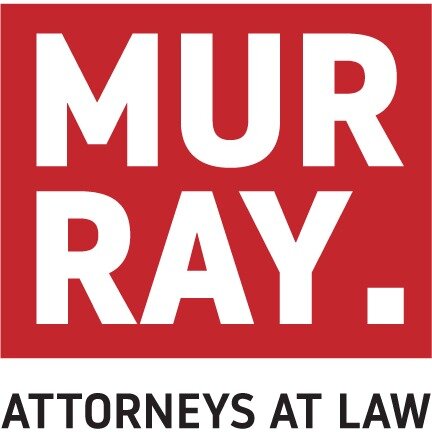Best Energy, Environment & ESG Lawyers in Curaçao
Share your needs with us, get contacted by law firms.
Free. Takes 2 min.
Or refine your search by selecting a city:
List of the best lawyers in Curaçao
About Energy, Environment & ESG Law in Curaçao
Energy, Environment, and Environmental, Social, and Governance (ESG) law in Curaçao focuses on regulating how individuals and businesses interact with local resources, environmental protection, sustainable business practices, and ethical governance. Curaçao, as a Caribbean island and constituent country within the Kingdom of the Netherlands, is especially sensitive to sustainable development. The government has enacted local laws that align with international standards on environmental protection while supporting responsible investment and energy innovation. ESG principles are an emerging area and draw upon local statutes as well as global guidelines pertaining to ethical conduct, transparency, and social responsibility.
Why You May Need a Lawyer
Individuals and companies may need legal assistance with Energy, Environment, and ESG matters in Curaçao in various situations, such as:
- Developing or financing renewable energy projects
- Complying with environmental regulations for construction or industrial activity
- Seeking permits for energy generation or waste management
- Managing disputes over land use, pollution, or environmental damage
- Assessing compliance with ESG reporting standards or requirements
- Litigating cases related to environmental harm or regulatory penalties
- Participating in government or public tenders involving sustainability requirements
- Advising corporate boards on ESG obligations and transparency
A lawyer with expertise in this field can guide you through the complexities of local laws, minimize risk, and help you achieve your environmental and sustainability goals.
Local Laws Overview
Curaçao's legal framework for energy, environment, and ESG matters is based on national legislation, international agreements, and policy initiatives. Key aspects include:
- Environmental Protection: Laws regulate pollution, waste management, and conservation of biodiversity to protect the ecosystem. This includes rules on hazardous substances, land reclamation, and coastal zone management.
- Energy Regulation: The government oversees energy production and distribution, supporting renewable energy development while ensuring reliability and affordability. Permits are necessary for energy-related projects, and specific guidelines exist for solar, wind, and fossil fuel activities.
- ESG Standards: While there is no single ESG law, several sector-specific regulations and best practices apply to corporate governance, transparency, community engagement, and social responsibility. Companies, especially those listed or operating internationally, are encouraged to align with global ESG frameworks.
- International Influence: As part of the Kingdom of the Netherlands, Curaçao implements several treaties and EU-inspired environmental standards that may directly or indirectly affect local regulations.
Frequently Asked Questions
What are the basic environmental regulations for businesses operating in Curaçao?
Businesses in Curaçao must comply with local laws on waste management, emissions control, hazardous materials handling, and conservation. This often requires permits and adherence to standards set by the government.
Does Curaçao have specific renewable energy policies?
Yes, Curaçao has been encouraging investment in solar, wind, and other renewables. The government sets targets for cleaner energy and issues permits for such projects, while maintaining oversight on safety and environmental impact.
How are ESG principles applied in Curaçao?
ESG is an emerging field in Curaçao, with companies integrating these practices to meet international expectations or attract investment. There are no broad ESG-specific laws, but existing regulations touch on governance, social responsibility, and environmental stewardship.
Are there penalties for violating environmental laws?
Yes, penalties can include fines, mandatory remediation, business license revocation, or, in severe cases, criminal liability for causing environmental harm.
How can I obtain an environmental permit?
Permits are issued by local governmental authorities. The process involves submitting a detailed application, environmental impact assessments, and compliance documentation. Assistance from a lawyer can help navigate the requirements.
Can foreign companies invest in Curaçao's energy sector?
Yes, foreign investment is allowed, but companies must comply with local regulations and obtain the necessary licenses. Government incentives may be available, especially for renewable energy projects.
What kinds of disputes can arise in the energy and environmental fields?
Disputes may involve land use, pollution claims, permit issues, breach of contract, or failure to meet environmental and social standards. Mediation or litigation may be required to resolve these disputes.
How often do laws and regulations change in Curaçao?
Legal requirements are periodically updated to reflect technological advances, environmental challenges, and international commitments. Staying compliant requires regular monitoring, especially for businesses.
Are there incentives for adopting sustainable business practices?
Several government programs encourage sustainability, offering incentives like tax benefits, grants, or technical assistance to businesses that invest in clean energy, resource efficiency, or social initiatives.
What role do local communities play in environmental decision-making?
Local communities can participate in consultations and impact assessments, especially for larger projects. Their input is considered in permitting and policy decisions, reflecting a commitment to social responsibility.
Additional Resources
If you need more information or assistance, consider contacting the following organizations or government bodies:
- Ministry of Health, Environment, and Nature (VOMIL) - the primary governmental body overseeing environmental regulations
- Ministry of Economic Development - responsible for energy policy and investment frameworks
- Curaçao Chamber of Commerce - offers information on regulatory compliance and business incentives
- Environmental organizations and NGOs - provide educational resources and advocacy support
- Local law firms specializing in energy, environmental, and corporate law
Next Steps
If you need legal assistance in the area of Energy, Environment, or ESG in Curaçao, consider the following steps:
- Identify the specific legal issue or question you have, such as needing a permit, handling a dispute, or aligning with ESG requirements.
- Gather relevant documentation, such as project plans, permits, or prior correspondence with authorities.
- Consult with a lawyer or legal specialist who understands local laws and has experience with similar matters.
- Ask about your legal obligations, potential risks, and the available options for your situation.
- Follow your lawyer’s advice to ensure compliance, mitigate risks, and achieve your sustainability objectives.
Taking proactive legal steps can help you navigate regulations, avoid costly penalties, and build a reputation for responsible energy and environmental management in Curaçao.
Lawzana helps you find the best lawyers and law firms in Curaçao through a curated and pre-screened list of qualified legal professionals. Our platform offers rankings and detailed profiles of attorneys and law firms, allowing you to compare based on practice areas, including Energy, Environment & ESG, experience, and client feedback.
Each profile includes a description of the firm's areas of practice, client reviews, team members and partners, year of establishment, spoken languages, office locations, contact information, social media presence, and any published articles or resources. Most firms on our platform speak English and are experienced in both local and international legal matters.
Get a quote from top-rated law firms in Curaçao — quickly, securely, and without unnecessary hassle.
Disclaimer:
The information provided on this page is for general informational purposes only and does not constitute legal advice. While we strive to ensure the accuracy and relevance of the content, legal information may change over time, and interpretations of the law can vary. You should always consult with a qualified legal professional for advice specific to your situation.
We disclaim all liability for actions taken or not taken based on the content of this page. If you believe any information is incorrect or outdated, please contact us, and we will review and update it where appropriate.
Browse energy, environment & esg law firms by service in Curaçao
Curaçao Attorneys in related practice areas.
Browse energy, environment & esg law firms by city in Curaçao
Refine your search by selecting a city.













